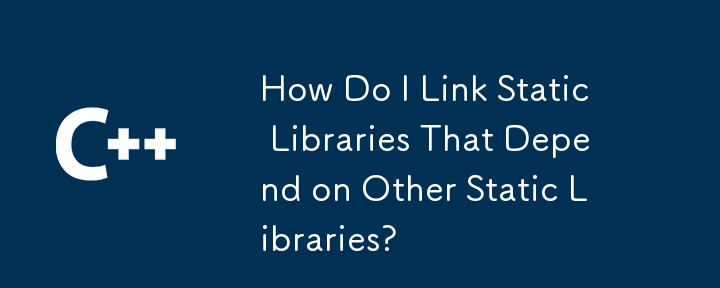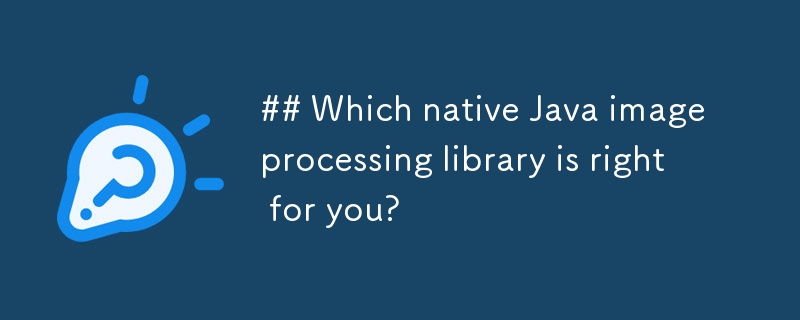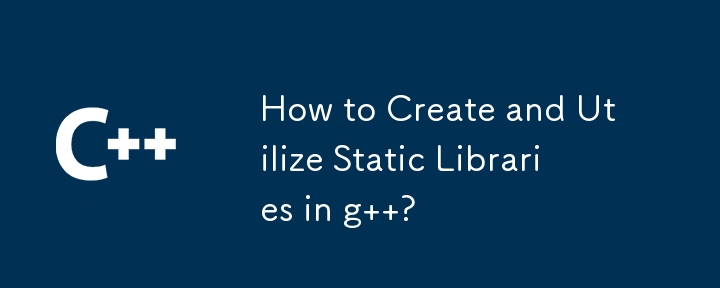Faker is a PHP library that lets you generate fake data. Whether you need to bootstrap your database, create nice-looking XML documents, fill in your persistence stress tests, or anonymize data fetched from a production service, Faker can do it.
All resources on this site are contributed by netizens or reprinted by major download sites. Please check the integrity of the software yourself! All resources on this site are for learning reference only. Please do not use them for commercial purposes. Otherwise, you will be responsible for all consequences! If there is any infringement, please contact us to delete it. Contact information: admin@php.cn
Related Article
 How Do I Link Static Libraries That Depend on Other Static Libraries?
How Do I Link Static Libraries That Depend on Other Static Libraries?
13 Dec 2024
Linking Static Libraries to Other Static Libraries: A Comprehensive ApproachStatic libraries provide a convenient mechanism to package reusable...
 How to Silence TensorFlow\'s Debugging Output?
How to Silence TensorFlow\'s Debugging Output?
28 Oct 2024
Suppression of Tensorflow Debugging OutputTensorflow prints extensive information about loaded libraries, found devices, and other debugging data...
 How Does jQuery Simplify DOM Manipulation for Web Developers?
How Does jQuery Simplify DOM Manipulation for Web Developers?
03 Jan 2025
Overflow: Hidden and Expansion of HeightjQuery distinguishes itself from other JavaScript libraries through its cross-platform compatibility and...
 Which native Java image processing library is right for you?
Which native Java image processing library is right for you?
30 Oct 2024
Native Java Image Processing Libraries for High-Quality ResultsAs you have encountered limitations with ImageMagick and JAI, let's explore other...
 How to Execute Command Line Binaries in Node.js?
How to Execute Command Line Binaries in Node.js?
27 Dec 2024
Executing Command Line Binaries in Node.jsExecuting third-party binaries is an essential task when porting CLI libraries from other languages to...
 How to Create and Utilize Static Libraries in g ?
How to Create and Utilize Static Libraries in g ?
24 Oct 2024
This article guides developers on crafting static libraries in C using g . It demonstrates how to compile source code into object files, create static libraries, and incorporate them into other projects. By leveraging this approach, developers can


Hot Tools

PHP library for dependency injection containers
PHP library for dependency injection containers

A collection of 50 excellent classic PHP algorithms
Classic PHP algorithm, learn excellent ideas and expand your thinking

Small PHP library for optimizing images
Small PHP library for optimizing images





